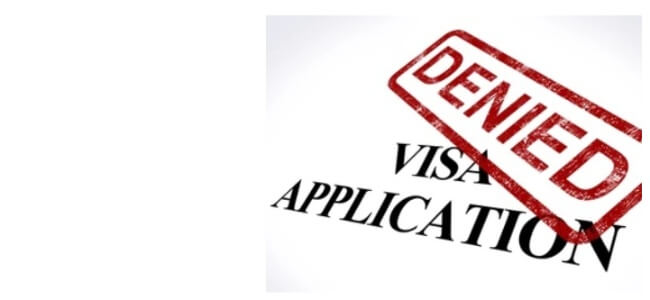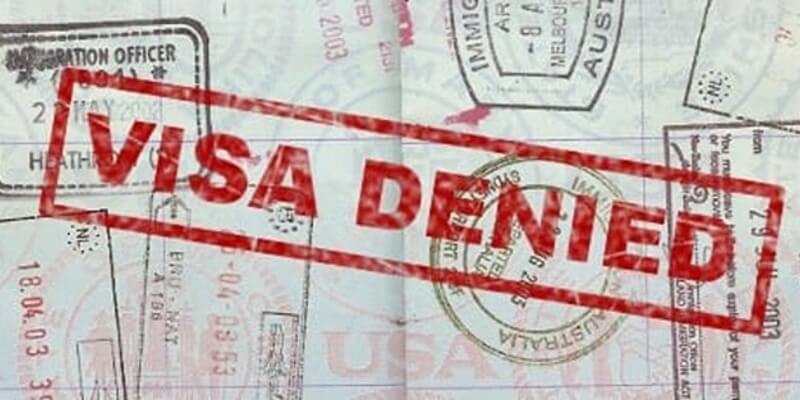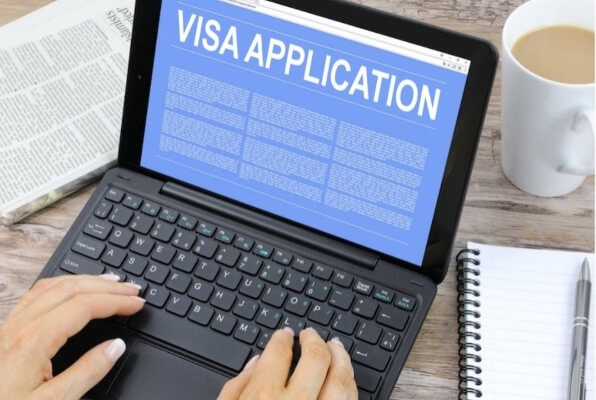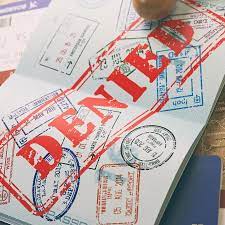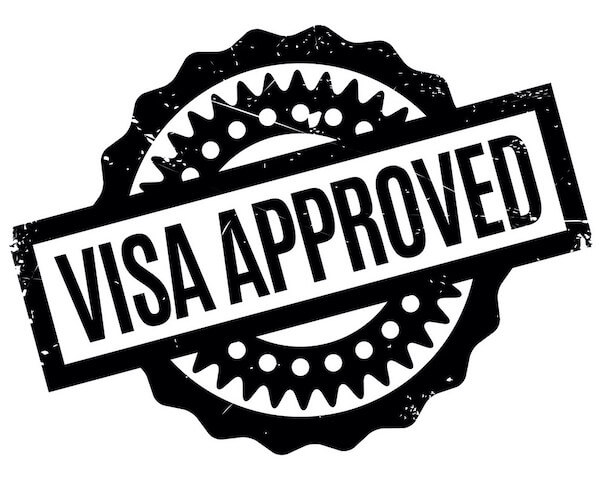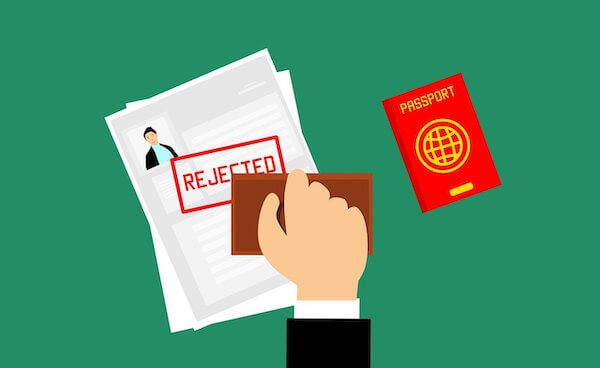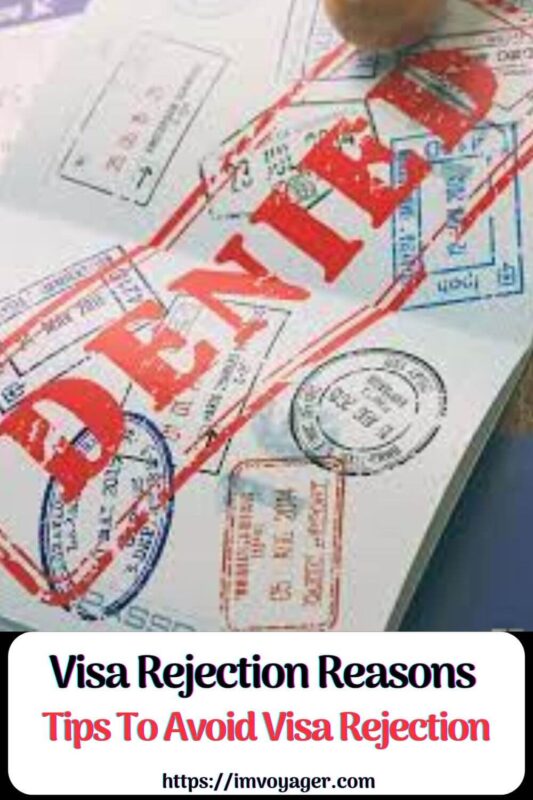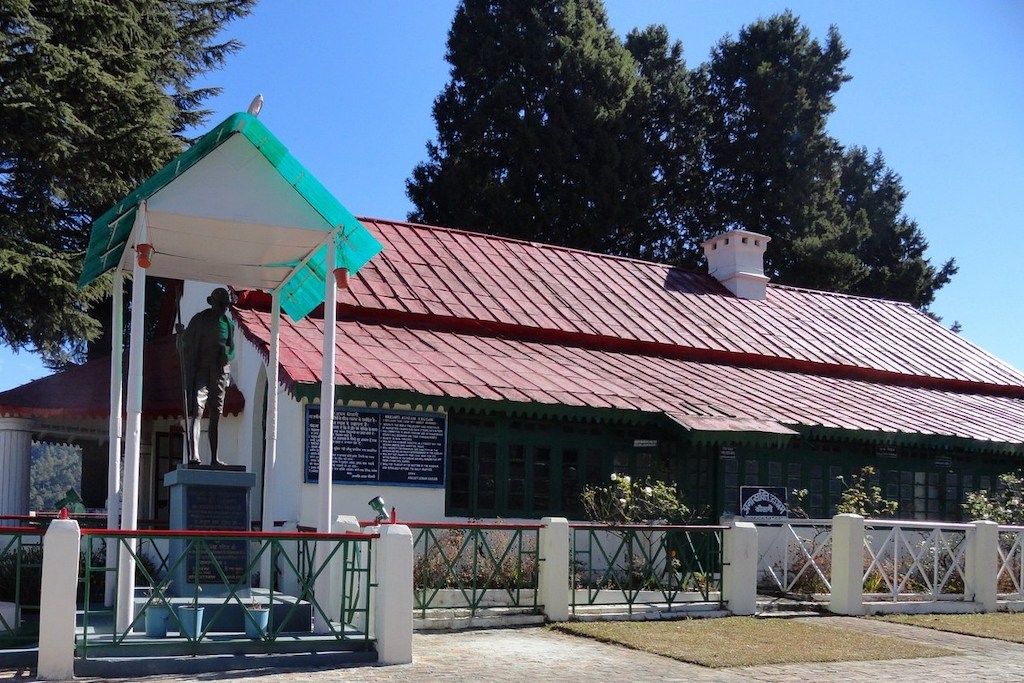Travelling abroad is one of life’s most exhilarating experiences, opening doors to new cultures, breathtaking landscapes, and unforgettable adventures. Whether it’s exploring the ancient ruins of Rome, savouring street food in Bangkok, or relaxing on the beaches of Bali, the thrill of travel often begins with a simple step: obtaining a passport and visa. While a passport is your ticket to international borders, a visa is essential for entry into many countries, serving as a guarantee of safety and adherence to local laws. This post delves into common visa rejection reasons and offers tips to avoid the pitfalls that can derail your travel plans.
Table of Contents
Traveling Abroad
Planning a trip abroad requires careful consideration of various factors. First, developing a solid itinerary ensures you make the most of your time away, whether it is a two-week vacation or an extended adventure. Budgeting is equally important; it helps in determining how much you can allocate for flights, accommodation, food, and activities. Essential documents like your passport and visa should be at the forefront of your planning.
Additionally, do not overlook travel insurance, which can save you from unforeseen expenses due to cancellations, medical emergencies, or lost luggage. Booking flights and hotels early can lead to significant savings, allowing you to splurge on experiences rather than just transportation and lodging. All these elements intertwine to create a smooth and enjoyable travel experience, but the most critical step often remains the visa application process.
Visa, e-Visa Application For International Travel
Embarking on international travel means navigating the complex world of visas, including the increasingly popular e-visa application process. It’s not just about filling out forms; it’s a chance to reflect on your travel intentions and ensure all documentation is accurate and complete. The reasons for visa rejection can often stem from simple oversights in the visa application, making it crucial to understand the common pitfalls.
Here are some important points to consider when applying for a visa or e-visa:
- Document Completeness: Ensure all required documents are submitted, including proof of funds and travel itinerary.
- Application Accuracy: Double-check for spelling errors or incorrect information, which can lead to delays or visa rejection.
- Clear Intent: Be prepared to explain your purpose for travel and provide supporting documentation.
- Financial Stability: Demonstrating sufficient funds can alleviate concerns about overstaying.
- Previous Travel History: A well-documented travel history can strengthen your application.
Understanding the common reasons for visa rejection is vital to ensuring your application stands the best chance of approval.
For travelers planning to visit Europe, being familiar with the Schengen visa requirements or seeking guidance from a trusted Schengen visa agent can help avoid common mistakes during the application process.
Different Types Of Visas
When travelling internationally, understanding the different types of visas is crucial for a smooth journey. Visas can vary based on the purpose of travel, duration of stay, and destination country. Familiarizing yourself with these categories helps ensure you select the appropriate one for your needs.
Here are some common types of visas:
- Tourist Visa: For leisure travel and sightseeing.
- Business Visa: For attending meetings, conferences, or business-related activities.
- Student Visa: For individuals pursuing education abroad.
- Work Visa: For those seeking employment in another country.
- Transit Visa: For passing through a country en route to another destination.
- Family Visa: For visiting or joining family members living abroad.
Reasons For Visa Rejection | Visa Rejection Reasons
When we talk about reasons for visa rejection, it’s important to recognize that numerous factors can lead to denial. Each application is unique, yet certain trends emerge across many cases. Visa rejection often occurs due to inadequate documentation, failure to meet eligibility criteria, or inconsistencies in the visa application.
Common reasons for visa rejection include:
- Incomplete application forms
- Missing required documents
- Incorrect or misleading information
- Previous visa overstays
- Insufficient financial resources
By familiarizing ourselves with these common reasons for visa rejection, we can better prepare our applications and increase our chances of a smooth approval process.
Common Reasons For Visa Rejection | 15 Top Visa Rejection Reasons | Visa Denials
The intricacies of visa applications can sometimes feel overwhelming, especially with the potential for visa rejection lurking in the background. To help you navigate this process, here are 15 main reasons for visa rejection:
- Incomplete Application: Failing to fill out all sections can lead to immediate denial.
- Missing Documents: Not providing necessary supporting documents, such as proof of accommodation or travel plans.
- Financial Insufficiency: Not demonstrating enough funds to support your stay may raise red flags.
- Incorrect Information: Mistakes in your name, passport number, or other details can lead to visa rejection.
- Criminal Record: A history of legal issues can adversely affect your application.
- Previous Overstay: Having overstayed a visa in the past can make it difficult to gain approval for future applications.
- Lack of Ties to Home Country: Not providing evidence of strong ties (like family or employment) can suggest a risk of overstaying.
- Unclear Travel Purpose: If the purpose of your travel isn’t clearly articulated, it may cause suspicion.
- Travel History: A lack of travel history may lead to concerns about your intentions.
- Poorly Written Application: Applications that lack clarity or professionalism can negatively impact your chances.
- Inadequate Insurance: Some countries require proof of travel insurance as part of the application.
- Wrong Visa Type: Applying for the wrong visa category can result in denial.
- Health Concerns: Some countries require health checks, and failure to meet health standards can lead to rejection.
- False Documentation: Providing forged or altered documents is a surefire way to be denied.
- Noncompliance with Local Laws: Any indication that you may violate local laws can lead to immediate rejection.
By keeping these reasons for visa rejection in mind, we can craft stronger applications.
Tips To Avoid Visa Rejection | What To Keep In Mind For Visa Application / e-Visa Application
To steer clear of visa rejection, we can adopt several proactive strategies during the visa application process. Here are 25 tips to keep in mind:
- Research Requirements: Always start by researching the specific visa application requirements for your destination.
- Prepare Documentation Early: Gather all required documents well in advance to avoid last-minute stress.
- Double-Check Your Application: Ensure that every section of your application is filled out correctly and completely.
- Use Clear and Concise Language: If writing a statement, keep it straightforward and focused on your travel purpose.
- Provide Evidence of Financial Stability: Include bank statements or sponsorship letters if applicable.
- Show Ties to Home Country: Include proof of employment or family connections to assure authorities you will return.
- Be Honest: Misleading information can lead to permanent visa rejection, so always be truthful.
- Check for Visa Type: Make sure you apply for the appropriate visa that matches your travel purpose.
- Seek Professional Help: Consider hiring a visa consultant if the process feels overwhelming.
- Provide a Clear Itinerary: Outline your travel plans to demonstrate the purpose of your trip.
- Include Proof of Accommodation: Confirm your lodging arrangements to show you have a place to stay.
- Maintain Consistency: Ensure all information across documents is consistent to avoid suspicion.
- Follow Instructions Carefully: Adhere strictly to the guidelines provided by the consulate or embassy.
- Document Travel History: If you’ve travelled before, include copies of previous visas and stamps.
- Address Health Requirements: If applicable, make sure you meet any health insurance or vaccination requirements.
- Be Polite and Professional: Always maintain a courteous demeanor when interacting with visa officials.
- Avoid Last-Minute Applications: Submit your visa application well ahead of your planned travel dates.
- Attend Interviews Prepared: If an interview is required, be prepared to explain your travel plans confidently.
- Maintain Clear Communication: If there are updates or changes to your plans, communicate them promptly.
- Understand Local Laws: Familiarize yourself with the laws of the country you’re visiting to avoid misunderstandings.
- Include Relevant References: If possible, provide references or letters from individuals in the destination country.
- Check for Additional Fees: Be aware of any extra costs that may be involved in the application process.
- Track Your Application: Monitor the status of your visa application and be ready to respond if additional information is requested.
- Stay Updated: Visa policies can change frequently, so stay informed about any recent developments.
- Be Patient: Understand that processing times vary and avoid unnecessary pressure on the authorities.
By keeping these tips in mind, we can significantly reduce the likelihood of experiencing visa rejection.
Visa Rejection Reasons – FAQs
Understanding the intricacies of visa rejection can feel daunting. Here are some frequently asked questions that may help clarify the common reasons for visa denials:
What are the most common reasons for visa rejection?
The most common reasons include incomplete applications, missing documents, and financial insufficiency.
How can I avoid visa rejection?
Thorough preparation, accurate documentation, and clear communication can significantly reduce the chances of rejection.
Can previous visa rejection affect my new application?
Yes, a history of visa rejection can negatively impact new visa applications, especially if reasons remain unaddressed.
What documents are usually required for a visa application?
Typically, required documents include a valid passport, photographs, proof of accommodation, and financial statements.
Is there a difference between visa and e-visa applications?
Yes, e-visas are typically processed online, while traditional visas may require in-person submission.
What happens if my visa application is rejected?
If rejected, you may receive an explanation and can often reapply after addressing the issues.
How long does it take to process a visa application?
Processing times can vary by country and type of visa, so it’s essential to apply well in advance.
Do I need travel insurance for my visa application?
Some countries require proof of travel insurance as part of the visa application process.
How important is my travel history in the visa application?
A solid travel history can bolster your application, showing that you have adhered to previous visa conditions.
What should I do if I need to change my travel plans after applying for a visa?
Notify the embassy or consulate as soon as possible, as changes can impact your application.
Are there specific financial requirements for visa applications?
Yes, most countries have minimum financial requirements to ensure travellers can support themselves during their stay.
What should I do if my application is lost?
Contact the embassy or consulate immediately for guidance on how to proceed.
Can a visa consultant help with my application?
Yes, a consultant can provide valuable insights and assistance in navigating the visa application process.
Is it necessary to provide a letter of invitation for my visa application?
Depending on the country, a letter of invitation may strengthen your application.
Can I appeal a visa rejection?
Yes, many countries allow you to appeal a decision, though the process varies by jurisdiction.
Navigating the world of visas can feel overwhelming, but understanding the common reasons for visa rejection can empower us to create stronger applications. Whether it’s through careful documentation, clear communication, or understanding financial requirements, being prepared can make all the difference. As we’ve explored, both traditional visa applications and e-visa applications come with their own set of rules and challenges, but with the right knowledge, we can reduce the risks of visa rejection.
We hope you found this post about “reasons for visa rejection and tips to avoid visa rejection” helpful. Have you encountered challenges with visa applications in the past? If so, please share your experiences in the comments! Let’s help each other navigate the complexities of international travel.
Embark on a journey of discovery and inspiration with us! Subscribe to our blog and newsletter for the latest travel tips and enchanting stories that fuel your wanderlust. Our YouTube channel – Travel With Sandy & Vyjay, provides a captivating look into India’s rich cultural heritage and stunning landscapes, showcasing destinations, accommodations, food, and more. Subscribe to our channel and watch our travel videos to ignite your travel dreams.
Connect with us on vibrant social media platforms — Facebook, Instagram, X (formerly Twitter), LinkedIn, and YouTube — to share your thoughts, engage with us, and join lively conversations. Become part of our enthusiastic WhatsApp community to meet fellow travellers who share your passion for culture and adventure. Dive into our blog for endless suggestions, wanderlust, and inspiration to explore more. Together, let’s embrace the thrill of discovery and create meaningful connections!
We are a reader-supported site. This means, at no additional cost to you, we may earn a small commission if you book a flight or hotel, or make a purchase through one of our affiliate links. Thank you for your support!
Flights – Air India (Domestic) or Air India (International), or Priceline
Tours – Click to book top tours around the world. Book tours and activities here.
Experiences – Book your next unforgettable experience here, with flexible bookings and free cancellations. Reserve tours and activities now and pay later.
Hotels – Click to book the best hotels/resorts. Choose the best stay options with TripAdvisor or Hotels.com, or HotelsCombined
Travel Insurance – Click to book Travel Insurance that covers a range of travel insurance and safety services including medical emergencies, lost luggage, trip cancellation and more
Visas and Travel Documents Application – Click here for Online Travel Visa Check
Online Passport Photo – Get Your Passport Photo Online here
Do You Love Traveling?
Do you want to know how to travel the world? We have put together a very useful travel resources page with the best travel tips. Go check it out now. Thanks for visiting our site Voyager - imvoyager.com and taking the time to read this post! If you wish to collaborate/work with us then reach us at imvoyager18@gmail.com We’d love it if you’d comment by sharing your thoughts on this post and share this post on social media and with your friends. Follow our journey on our social media channels: Facebook X Instagram Pinterest YouTube
Start dreaming about your next adventure with Tripadvisor. Book your next unforgettable experience here with flexible bookings and free cancellations.
Flight booking online at the best fare
60+ Million Users Trust TripAdvisor With Their Travel Plans. Shouldn't You?

Sandy & Vyjay are a husband and wife duo who are travel content creators. They are co-founders of this travel website and are one of the leading travel content creators in India.
Sandy & Vyjay quit their successful corporate careers to pursue their passion for travel and writing full-time. Their dedication has earned them the “Best Travel Writer” award and numerous accolades on both national and international stages. Focusing on India’s destinations, heritage, and culture, they are passionate advocates for nature and the environment. Through their content, they promote ecotourism and sustainable travel, inspiring others to explore and preserve the beauty of India.
